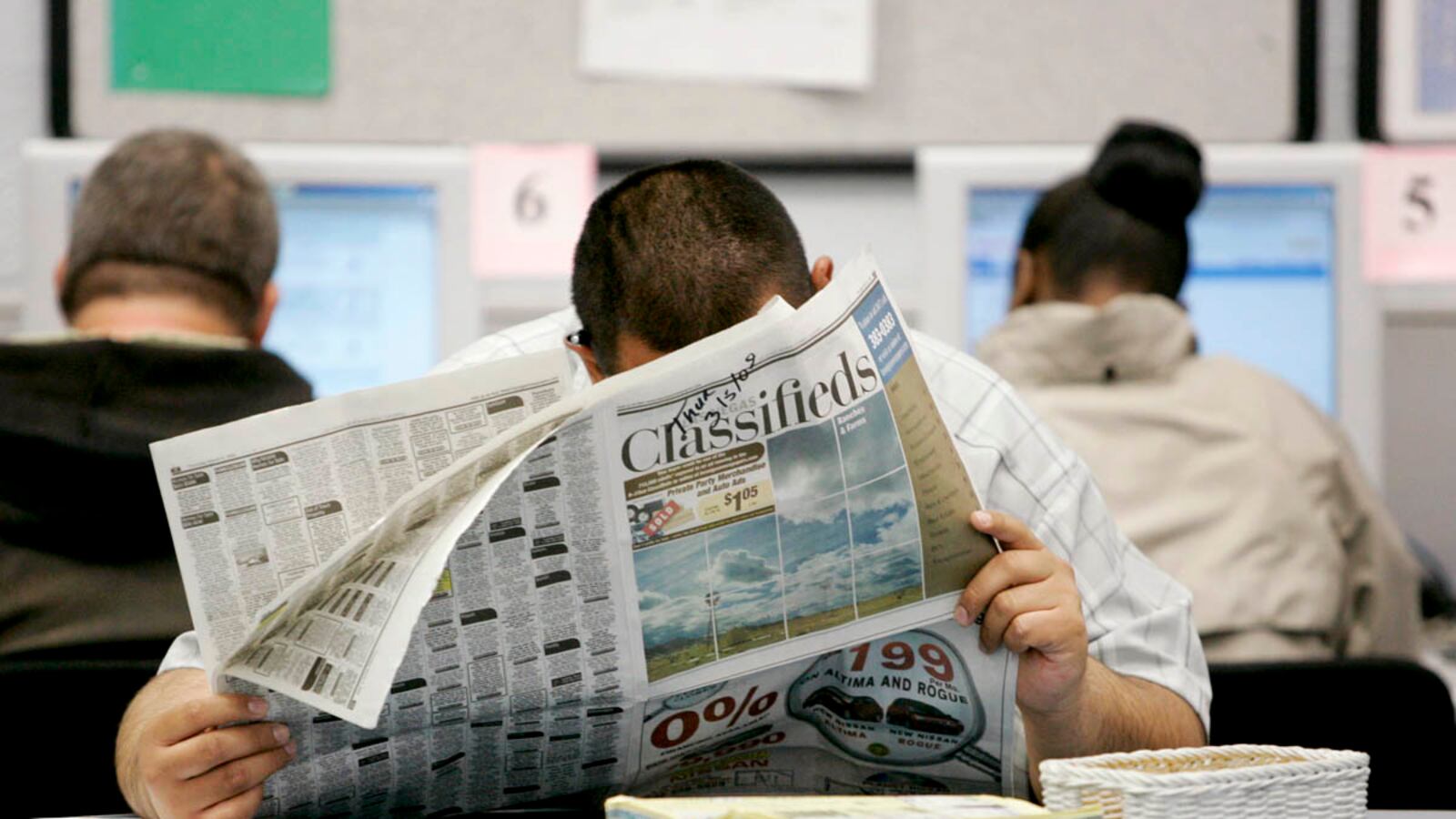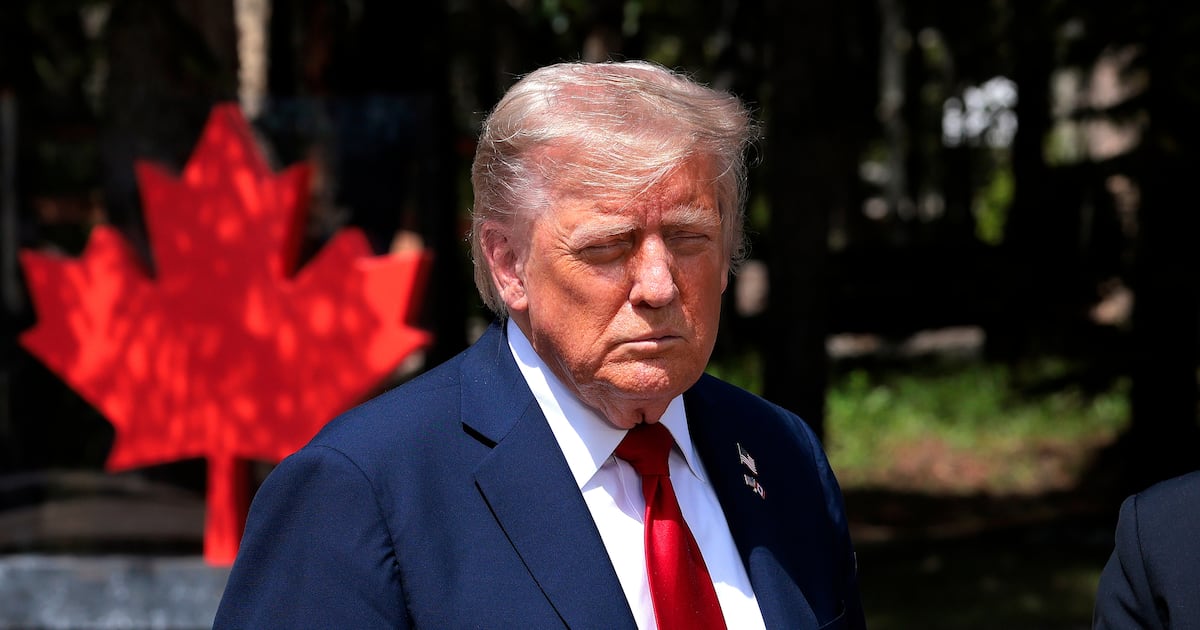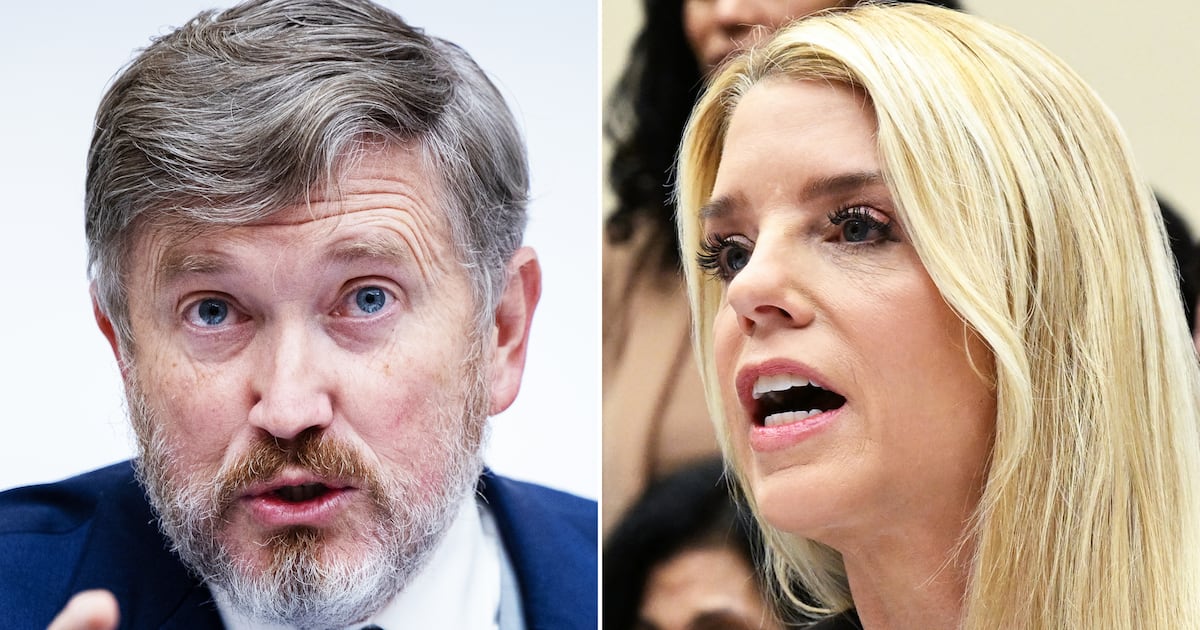There’s a new four-letter buzzword in Washington, and everyone wants a piece of it.
Gone is the word “debt.” That’s so last week. Now the word is “jobs.”
Jobs—or the recent lack of them—have been President Barack Obama’s political Achilles, with unemployment hovering over 9 percent. He plans to spend the next few weeks describing how to create them. Republicans, meanwhile, plan to use jobs as a political shield to try to block everything from new taxes to environmental regulations.
The reason is simple: There aren’t enough jobs in the economy to support the recovery, leaving investors and workers fearful of a double-dip recession.
The Labor Department released the latest round of employment statistics on Friday, and Wall Street got a tiny dose of good news with 117,000 jobs added to the private sector in July. But the unemployment rate stubbornly stayed above 9 percent, leaving both political parties to scramble for a new message now that the debt crisis is resolved.
Obama is making the rounds to convey the message that’s he’s on it. On Friday, it was boosting veteran jobs at Washington’s Navy Yard where he lamented that unemployment was “still too high.” Next Tuesday it’ll be green jobs, touting his mileage standards for saving shipping companies big money—and in effect, jobs. And the week after, the president will embark on a campaign-style bus trip through the Midwest, billed as a “listening tour” for unemployed Americans.
Republicans want some of the action, too. House Speaker John Boehner sent his party home with a packet to hammer home the jobs message districts. The package of talking points, obtained by Newsweek and The Daily Beast, includes a daily example of Republican lore to be used at town halls and campaign rallies—like August 13, for instance, the date in 1981 when President Ronald Reagan signed the Economic Recovery Tax Act and reduced marginal taxes 23 percent. It also has a list of recent Republican accomplishments to tout back home, as well as suggestions for how often to post on Twitter, Facebook, and their official government websites messages that hammer Democrats (answer: once a day).

Odds are they’ll need the guidance. When Republican Rep. Jeff Denham arrived for the August recess in his district in Fresno, California, several hundred protesters from a local union convention showed up unannounced at his office to demand more jobs. Busy at an event honoring veterans across town, he wasn’t there to meet them.
After the debt-limit fight of late July, the jobs message will also overtake the media narrative. In his final briefing last week, White House spokesman Jay Carney played defense to repeated questions about what the president’s doing about jobs. “What is he doing” to create more of them, ABC’s Jake Tapper asked. The Wall Street Journal’s Carol Lee piled on: “Why should Americans believe that the White House can create jobs when the unemployment rate has been so stagnant?”
Carney fell back on a talking point. “He is working very closely with his senior economic advisers to come up with new proposals to help advance growth and job creation.”
The stock market’s major losses last week kept up the drumbeat, leading reporters and cable analysts to blame Washington for the climate of uncertainty, especially after a cliffhanger debt fight that roiled global markets.
The only people not getting any play from the lack of jobs? The 14 million people who don’t have one.






